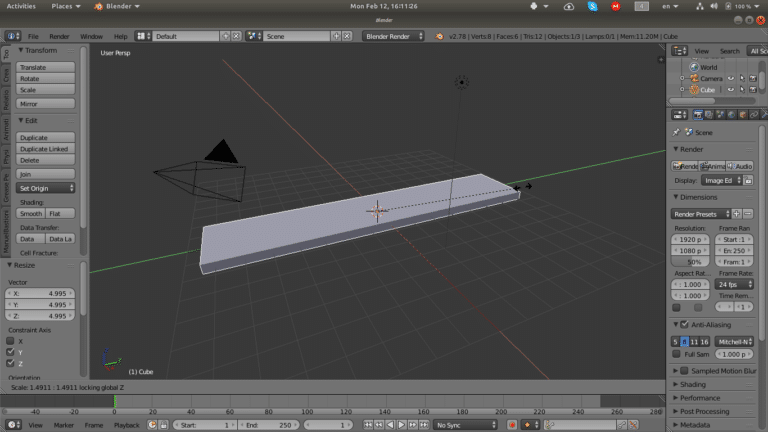

The stock deb package is also available to install in Ubuntu Software, though it sucks and may not work! Instead, users may open terminal by pressing Ctrl+Alt+T on keyboard, and run apt command instead: sudo apt update & sudo apt install blenderĪnd to uninstall the package, use sudo apt remove -autoremove blender command in terminal. Works on 64-bit PC, arm64 (Apple Silicon, Raspberry Pi), armhf, ppc64el, and s390x processors.Official package by Ubuntu, but no update anymore.Though it’s always old, it has multi-arch support! stock Blender package features: Ubuntu has the 3D creation software in its official repositories. From both package details and header bar, it’s marked as Snap package.Ģ. Simply open Ubuntu Software, search for and install Blender. The package is easy to install as mentioned. Take more disk space than native deb package.Run in box with snapd daemon, though pre-installed out-of-the-box.Snap is an universal Linux package format developed by Canonical, the company behind Ubuntu. The software developer team offers official snap package that works on Ubuntu and most other Linux distributions.

Here you may choose the one that you prefer.

It’s available to install in Ubuntu via a few different package formats. Official builds are made with RHEL 8 and glibc 2.28.This tutorial shows all the ways to install the 3D creation software Blender in Ubuntu, including Snap, Flatpak, native Deb packages, and compile from source tarball.īlender is a free open-source software for creating animated films, visual effects, computer games. Builds will only run on Linuxes with the same or higher GLIBC version. lib/linux_x86_64_glibc_228, which will be automatically picked up when building Blender itself.īesides the libraries, the GLIBC version of the system affects portability. Running make deps will build libraries in. These libraries are built from source, and this system can also be used to create your own portable libraries. When using the precompiled libraries, builds are portable and can be shared with others. This makes it possible to share packages between Blender and other software, however the resulting builds will generally not work on other computers. The above instructions install packages through the system package manager. with-all Include some extra libraries that are by default not considered mandatory (main effect of this one is building OpenCollada). install Where to install the libraries we have to build (defaults to /opt/lib). source Where to store downloaded sources for libraries we have to build (defaults to ~/src/blender-deps). This scripts accepts some optional command lines arguments (use -help one to get an exhaustive list), among which:


 0 kommentar(er)
0 kommentar(er)
